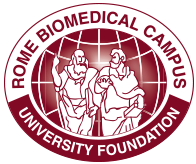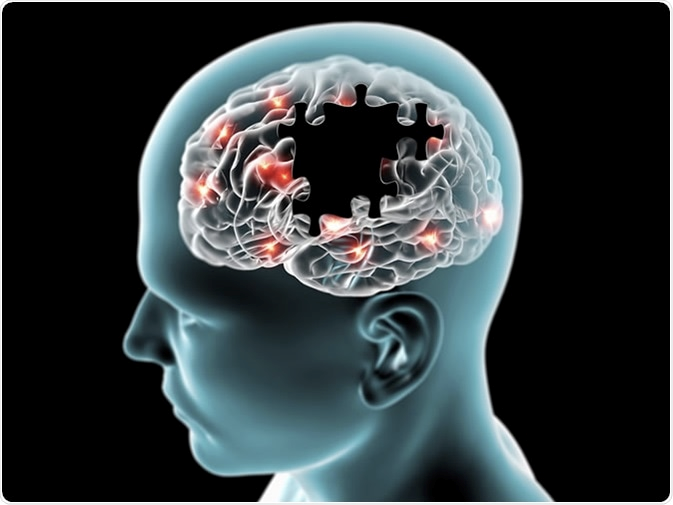As part of our institutional activities, the Biomedical University Foundation secured significant funding for a total of 735,000 Euros from the Rome Foundation aimed at supporting a research project on Alzheimer’s Disease: “Beyond Amyloid Hypothesis: a novel approach to fight Alzheimer’s Disease”.
In the latest Alzheimer’s Disease International (ADI) report, the global number of patients with dementia is estimated to be around 47 million and most of them are affected by Alzheimer’s disease.
These numbers are soaring and, to date, there are no available treatments effective in slowing down the progression of the disease.
One factor determining this situation is related to the fact that the patients recruited in clinical trials are generally in advanced stages of the disease. To take steps forward it is therefore necessary to understand what happens in the initial stages of the disease, when the patient’s cognitive functions are still intact although the disease is advancing.
Fondazione Roma has been committed to fighting Alzheimer’s disease for years by operating in five areas of intervention – Health, Scientific Research, Assistance to weaker social categories, Education and training, Arts and Culture – in synergy with public institutions and with the most dynamic private institutions on the local, national and international scenes. The main aim is building a welfare community that, inspired by the principle of solidarity, can effectively respond to the needs of a society in constant evolution.
“I believe that a technological leap is necessary” – explained prof. Avv. Emmanuele Francesco Maria Emanuele, Honorary President of the Rome Foundation – “specifically in the biomedical and healthcare fields, with particular focus on serious and widespread diseases such as Alzheimer’s Disease. With our participation in this project we confirm our long-lasting commitment and work throughout the years to fight this disease not only by finding new perspectives in healthcare, but also by creating Villaggio della Bufalotta, a project which I strongly supported, expressly dedicated to Alzheimer’s patients, to allow them a better quality of life, a tangible sign to allow us to look forward to the future with hope and trust towards human resilience”.
Franco Parasassi, President of the Rome Foundation, added that “for decades the Foundation has believed it is essential to support excellent scientific research and with this new project we confirm our dedication to the most innovative scientific fields, so that they accompany the civil and social progress of the communities, respecting the inviolable dignity of each individual, especially when sick ”.
The research team led by Prof. Marcello D’Amelio, Head of the Molecular Neuroscience Research Unit of the Campus Bio-Medico University of Rome, has published recent works where a dopaminergic neurons rich region of the brain, is identifies as an area particularly susceptible to degeneration in the early stages of the disease. Further studies dedicated to this topic will have possible important therapeutic repercussions.
The project involves multiple Units of Campus Bio-Medico University – Neurology, Neurophysiology, Neurobiology, Developmental Neuroscience and Pharmaceutical Sciences – and will last three years shedding new light on the molecular mechanisms operating in the brain before the disease sets off from a neurological point of view. This knowledge represents the starting point for identifying new strategies key both for early diagnosis and for the development of new drugs.
As part of our institutional activities, the Biomedical University Foundation secured significant funding for a total of 735,000 Euros from the Rome Foundation aimed at supporting a research project on Alzheimer’s Disease: “Beyond Amyloid Hypothesis: a novel approach to fight Alzheimer’s Disease”.
In the latest Alzheimer’s Disease International (ADI) report, the global number of patients with dementia is estimated to be around 47 million and most of them are affected by Alzheimer’s disease.
These numbers are soaring and, to date, there are no available treatments effective in slowing down the progression of the disease.
One factor determining this situation is related to the fact that the patients recruited in clinical trials are generally in advanced stages of the disease. To take steps forward it is therefore necessary to understand what happens in the initial stages of the disease, when the patient’s cognitive functions are still intact although the disease is advancing.
Fondazione Roma has been committed to fighting Alzheimer’s disease for years by operating in five areas of intervention – Health, Scientific Research, Assistance to weaker social categories, Education and training, Arts and Culture – in synergy with public institutions and with the most dynamic private institutions on the local, national and international scenes. The main aim is building a welfare community that, inspired by the principle of solidarity, can effectively respond to the needs of a society in constant evolution.
“I believe that a technological leap is necessary” – explained prof. Avv. Emmanuele Francesco Maria Emanuele, Honorary President of the Rome Foundation – “specifically in the biomedical and healthcare fields, with particular focus on serious and widespread diseases such as Alzheimer’s Disease. With our participation in this project we confirm our long-lasting commitment and work throughout the years to fight this disease not only by finding new perspectives in healthcare, but also by creating Villaggio della Bufalotta, a project which I strongly supported, expressly dedicated to Alzheimer’s patients, to allow them a better quality of life, a tangible sign to allow us to look forward to the future with hope and trust towards human resilience”.
Franco Parasassi, President of the Rome Foundation, added that “for decades the Foundation has believed it is essential to support excellent scientific research and with this new project we confirm our dedication to the most innovative scientific fields, so that they accompany the civil and social progress of the communities, respecting the inviolable dignity of each individual, especially when sick ”.
The research team led by Prof. Marcello D’Amelio, Head of the Molecular Neuroscience Research Unit of the Campus Bio-Medico University of Rome, has published recent works where a dopaminergic neurons rich region of the brain, is identifies as an area particularly susceptible to degeneration in the early stages of the disease. Further studies dedicated to this topic will have possible important therapeutic repercussions.
The project involves multiple Units of Campus Bio-Medico University – Neurology, Neurophysiology, Neurobiology, Developmental Neuroscience and Pharmaceutical Sciences – and will last three years shedding new light on the molecular mechanisms operating in the brain before the disease sets off from a neurological point of view. This knowledge represents the starting point for identifying new strategies key both for early diagnosis and for the development of new drugs.



